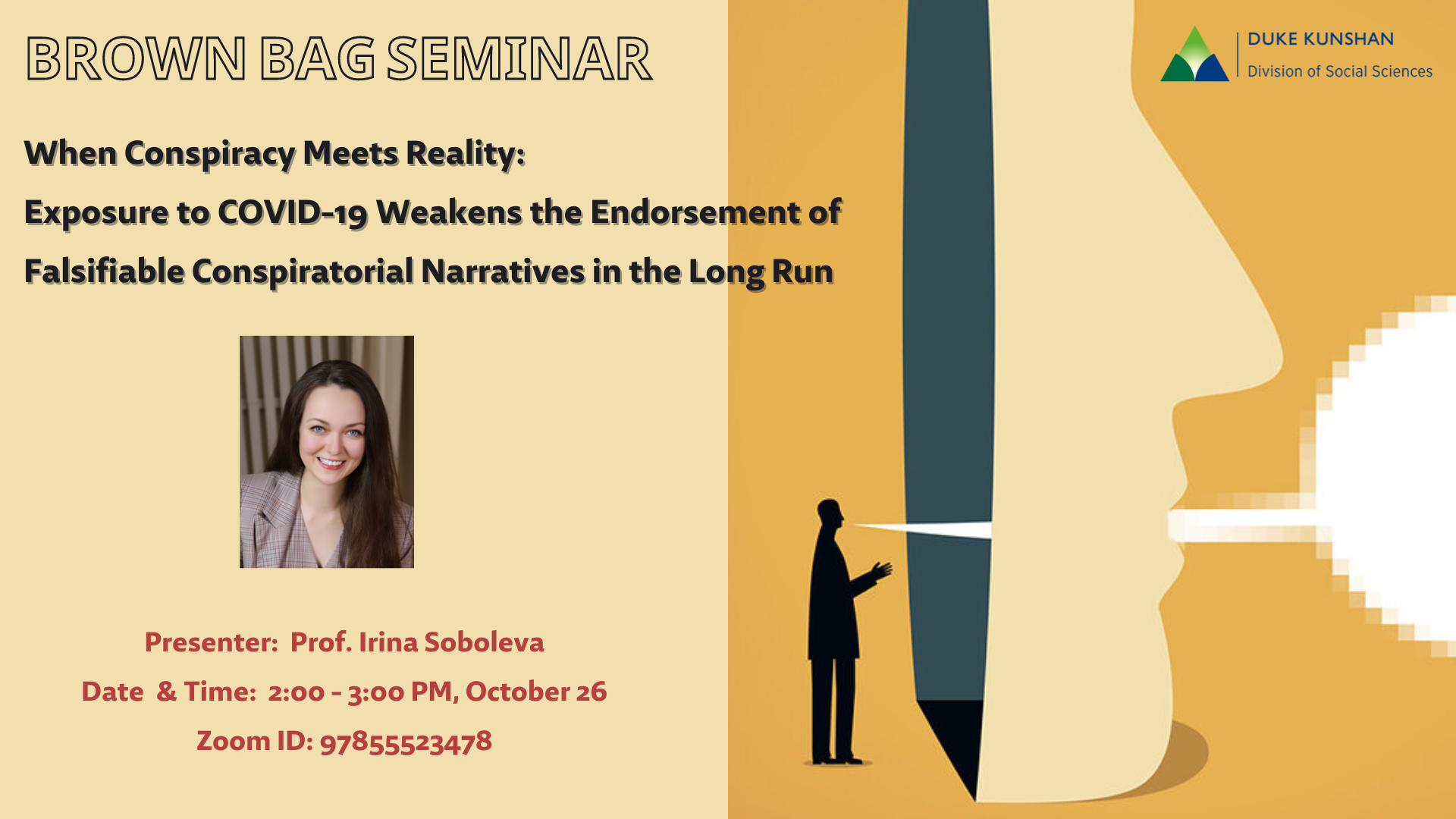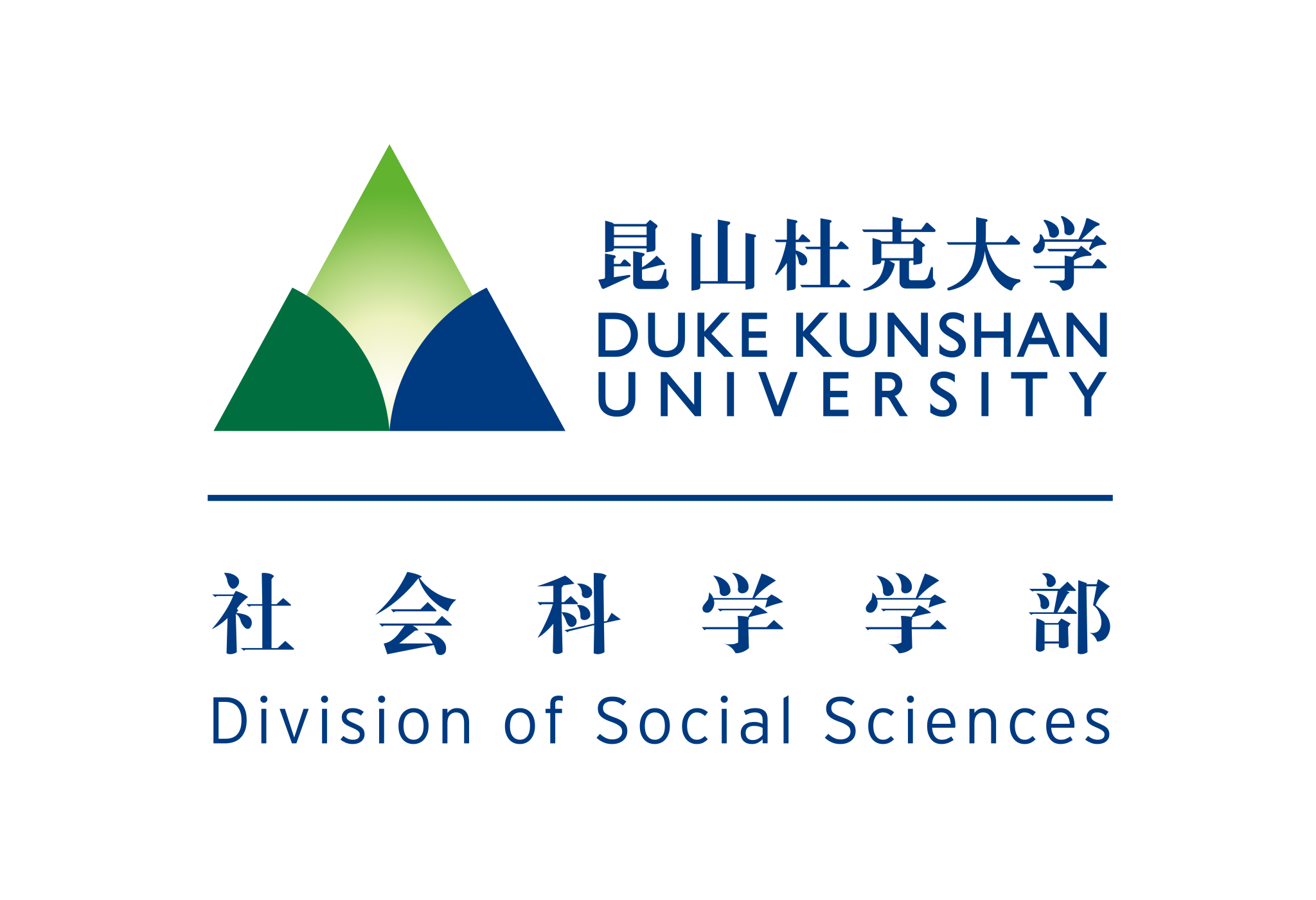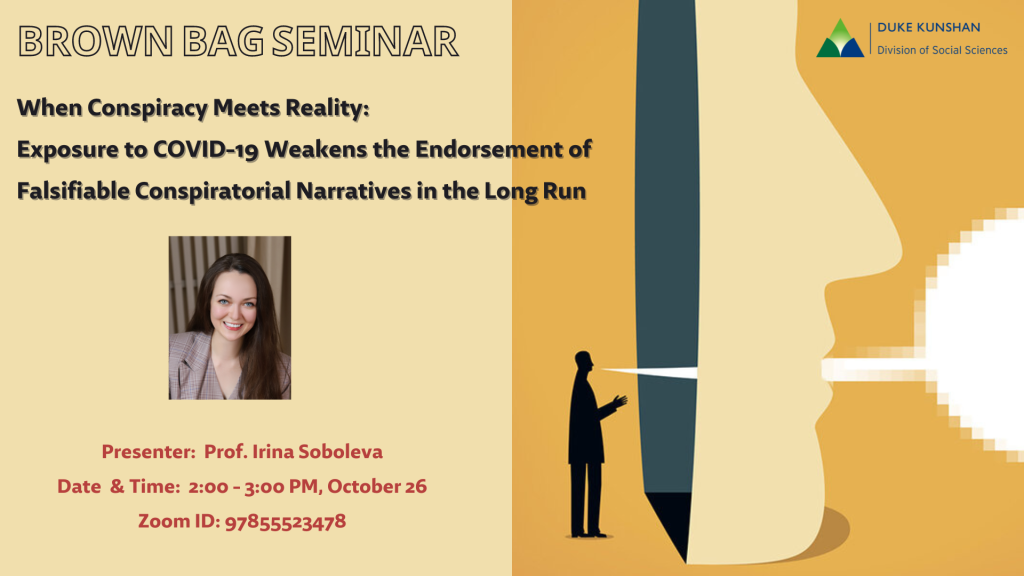
When Conspiracy Meets Reality: Exposure to COVID-19 Weakens the Endorsement of Falsifiable Conspiratorial Narratives in theLong Run
Abstract:
COVID-19 triggered a surge of conspiracy theories complicating public health efforts to curtail its spread. This paper builds on representative panel data (N=1,409) to explore how personal encounters with the virus influenced conspiracy theories in 2020 and 2021. The findings reveal that virus exposure doesn’t uniformly impact conspiracy theory endorsement. Only theories falsifiable by firsthand COVID-19 experience decreased in popularity, while more challenging-to-verify conspiratorial narratives remained equally supported between 2020 and 2021 (e.g., theories on COVID-19 as a profit-driven pharmaceutical creation or a biological weapon from China). The study further delves into the impact of exposure on conspiratorial thinking by showing that virus exposure reduces conspiracy endorsement only for those well-prepared for the pandemic. Respondents exposed to the virus in 2020 while being financially and psychologically vulnerable displayed higher reliance on conspiracy theories in 2021. This finding provides additional support for the coping function of conspiracy theories during stressful public events.




